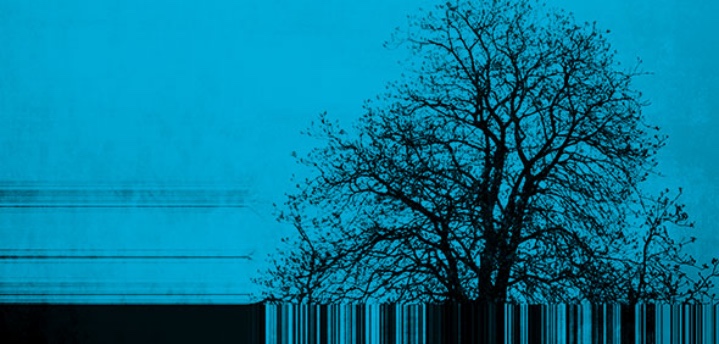IM912 Media and Social Theory
IM912
Media and Social Theory
Cross-Disciplinary Postgraduate Modules
IM902 Approaches to the Digital
IM903 Complexity in the Social Sciences
IM904 Digital Objects, Digital Methods
IM913 Spatial Methods and Practice in Urban Science
IM919 Urban Data - Theory and Methodology
IM923 User Interface Cultures: Design, Method and Critique
IM927 Digital Cities: Interdisciplinary Perspectives
IM931 Interdisciplinary Approaches to Machine Learning
IM934 Ecological Futures: Science, Culture and Media
QS903 Advanced Quantitative Research
QS905 Fundamentals in Quantitative Research Methods
QS906 Big Data Resarch: Hype or Revolution?
Former Modules
IM928 Urban Resilience, Disasters and Data
IM929 Ethnography, Knowledge and Practice

30 CATS - (15 ECTS)
Available as optional module with Sociology for 2015-16
(CIM and) Sociology
Indicative Syllabus
Week 1: Writing: Media Ecology and the Long Route from Literature
Week 2: Code and Software: Material and Formal Analysis
Week 3: Image / Gaze / Vision
Week 4: Mass Media: The Culture Industry
Week 5: Television: Cultural Studies and Medium Theory
Week 6: The Space of Media: Archive and Technologies of Storage and Remembrance
Week 7: The Time of Media: Acceleration and the Fetishisation of the Future
Week 8: Algorithms: Generative Forms of Media and Culture
Week 9: Memes: Media Archaeology
Week 10: Technogenesis: The birth and evolution of media
Illustrative Bibliography
Adorno, Theodor, The Culture Industry (London: Routledge, 1991).
Amoore, Louise ‘Data Derivatives: On the Emergence of a Security Risk Calculus for Our Times’, Theory, Culture & Society 28.6 (2011): 24-43.
Baudrillard, Jean Simulation and Simulacra (Ann Arbor: The Univeristy of Michigan Press, 1994).
Cheney-Lippold, John (2011), ‘A New Algorithmic Identity: Soft Biopolitics and the Modulation of Control, Theory, Culture & Society 28.6 (2011): 164-181.
Chun, Wendy Hui Kyong ‘On Software, or the Persistence of Visual Knowledge,’ Grey Room 18 (2004): 26-51.
Debord, Guy, The Society of the Spectacle (New York: Zone Books, 1995).
Driscoll, Kevin (2012), ‘From Punched Cards to “Big Data”: A Social History of Database Populism’, Communication+, issue 1, pp. 1-33
Fuller, Matthew, ‘Introduction,’ in Software Studies: A Lexicon (Cambridge, MA: MIT Press, 2008), pp. 1-14.
Guillory, John ‘Genesis of the Media Concept’, Critical Inquiry 36.2 (2010): 321-362.
Kittler, Friedrich ‘Theoretical Presuppositions’, in Optical Media: Berlin Lectures 1999, trans. Anthony Enns (London: Polity, 2010), pp. 29-46.
_____. ‘There Is No Software’, in Literature, Media, Information Systems: Essays, trans. John Johnston (Amsterdam: G+B Arts International, 1997), pp. 147-155.
Kroker, Arthur and Kroker, Marilouise (2013) Critical Digital Studies, Toronto, Buffalo, London: University of Toronto Press.
Lash, Scott (2007) 'Power after Hegemony. Cultural Studies in Mutation?' Theory, Culture and Society 24 (3) 55-78.
Manovich, Lev, ‘Media After Software,’ Journal of Visual Culture 12 (2013): 30-37.
Manovich, Lev, ‘Introduction’, in Software Takes Command (New York: Bloomsberry, 2013), pp. 1-43.
McLuhan, Marshall ‘Two Selections - The Galaxy Reconfigured, The Medium Is the Message,’ in Noah Wardrip-Fruin and Nick Monfort (eds) The New Media Reader (Cambridge, MA: MIT Press, 2003), pp. 193-209.
McLuhan, Marshall, Understanding Media (New York: Routledge, 2001)
Parrika, Jussi (2007). Digital Contagions: A Media Archaeology of Computer Viruses. New York: Peter Lang.
Siegert, Bernard, ‘Cacography or Communication? Cultural Techniques in German Media Studies,’ trans. Geoffrey Winthrop-Young, Grey Room 29 (2007): 26-47.
Steigler, Bernard, Technics and Time 1: The Fault of Epimetheus (Stanford: Stanford University Press, 1994).
Virilio, Paul, Open Sky (Verso, 1997).
Walter, Ong, Orality and Literacy (London, Methuen, 1982).
Wolfgang Ernst, ‘Media Archaeography: Method and Machine versus the History and Narrative of Media,’ in Digital Memory and the Archive (Minneapolis: University of Minnesota Press, 2013), pp. 55-73.
Williams, Raymond, Television (New York: Routledge, 2003)
Williams, Raymond ‘From Medium to Social Practice’, Marxism and Literature (Oxford: Oxford University Press, 1977), pp. 158-164
Learning Outcomes
By the end of the module, students should be able to demonstrate:
advanced knowledge of contemporary and historical approaches to media;
an ability to distinguish between different approaches to the study of media and the broader social theories and historical periods in which they are formed;
capacity to critically analyse a range of contemporary media technologies using different approaches;
advanced knowledge of the relation between technical forms (media) and society.
Important Information
Please be advised that you may be expected to have access to a laptop for some of these courses due to software requirements; the Centre is unable to provide a laptop for external students.
Gaining the permission of a member of CIM teaching staff to take a module does not guarantee a place on that module. Nor does gaining the permission of a member of staff from your home department or filling in the eVision Module Registration (eMR) system with the desired module. You must contact the Centre Administrator (J dot Sharp at warwick dot ac dot uk) to request a module place.
Please be advised that some modules may have restricted numbers. Places are not allocated on a first-come first-served basis, but instead all external students (other than to linked departments) requesting a CIM module as optional, who submit their request by the relevant deadline are given equal consideration.
We are normally unable to allow students (registered or auditing) to join the module after the third week of it commencing. If you have any queries please contact the Centre Administrator.
